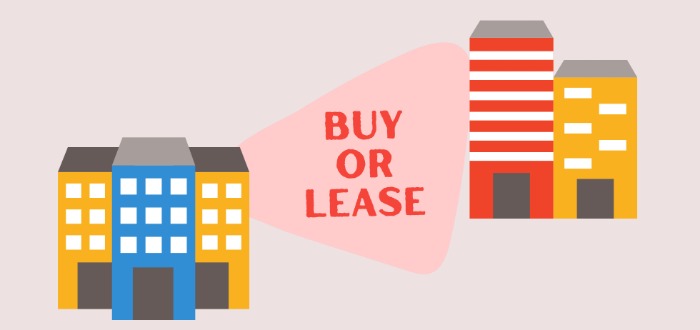Buy vs. Lease, What’s Best for Your Business?
December 1, 2021

“To lease or to buy, that is the question.” Many businesses in San Antonio have been considering whether it is better to continue to lease their business location or to buy their own building. After all, why “throw away” all of that rent every month when you could be investing it in your own property? Great question! With all of the “bad news” about real estate in the media, is this a good time to scoop up a great deal? Well, the good news is that San Antonio’s properties are holding their value well. Commercial foreclosures are in the normal range and we see lots of investors scouring for “good deals.” That may be the bad news if you are waiting on the sidelines to see blood in the streets so you can make a “real steal.” Better to make your decision on business fundamentals rather than fancy yourself as a real estate vulture.
I want to lay out for you the Pro’s and Con’s of Buying versus Leasing. There is not a standard answer, so every business needs to plug in his or her own situation before reaching a conclusion. It’s not cut and dried!
BUYING PRO’s
1) you control your own destiny, pretty much; it’s YOUR location; you can stay as long as you pay your mortgage and taxes and you get the appreciation from your investment in the property;
2) you get tax savings from cost recovery (depreciation) on the building, but not the land;
3) if part of the property is rented to others, you enjoy the income, offsetting your own expenses;
4) you can upgrade, change the look, even the total use of the property, if you desire.
BUYING CON’s
1) you must have the financial capacity to qualify for the loan—it’s best to start with your own bank, but do comparison shopping;
2) the initial outlay for the down payment will take money from your cash flow—this can be a prohibitive problem for a start up business;
3) the mortgage will impact your balance sheet as a financial liability as long as it is there—5, 10 or 20 years perhaps;
4) as your own Landlord, all the property taxes, insurance, repairs, and legal compliance are your problems to solve, as well as the safety of your employees, other tenants and the public while they are on your property;
5) it may be difficult to expand or downsize your building;
6) you may need to sell at a time when it is difficult to get your preferred price. Like so many things, timing is everything.
LEASING PRO’s
1) there is no down payment (often 20% or more of the price), so leasing is less expensive up front; that cash may be more useful in another part of your business;
2) you can get started faster because a lease space is much easier to find than to buy or build your own building;
3) the financial qualifications for leasing are often less stringent than qualifying for a loan;
4) lease payments are fully tax-deductible, including the operating expenses;
5) if you find you need to move to a new and better location, you can relocate at the end of your lease, rather than trying to sell your building and buying a new one;
6) if you outgrow your space or you need to down-size, you may be able to work something out with your Landlord;
7) major repairs are often the Landlord’s responsibility (depending on your lease terms);
8) if you need a special location near a hospital, courthouse or client, it may be easier to lease it than to buy it.
All of this adds up to: “Leasing is more flexible.”
LEASING CON’s
1) big, well-financed companies may find leasing is more expensive;
2) you have no investment value left in your location when the lease is over;
3) it may be hard to upgrade or change your premises to suit your growing needs since the changes may not be something the Landlord really wants;
4) you can’t move to a new location until your lease term expires;
5) the Landlord gets the property appreciation, not you;
6) you can’t control who your neighbors will be—a new but annoying business (parking, noise, signage, clientele) moving in next door is beyond your control;
7) you may be forced to move if your Landlord does not renew your lease.
Next Step: Contact A Commercial Real Estate Professional
A little complicated, isn’t it. Running your own business often is. These points are tools to help start your analysis. To take your analysis to the next level, you may want to consider contacting a commercial real estate site professional, i.e., Certified Commercial Investment Member, who has been trained to use all aspects of these tools effectively for you.

